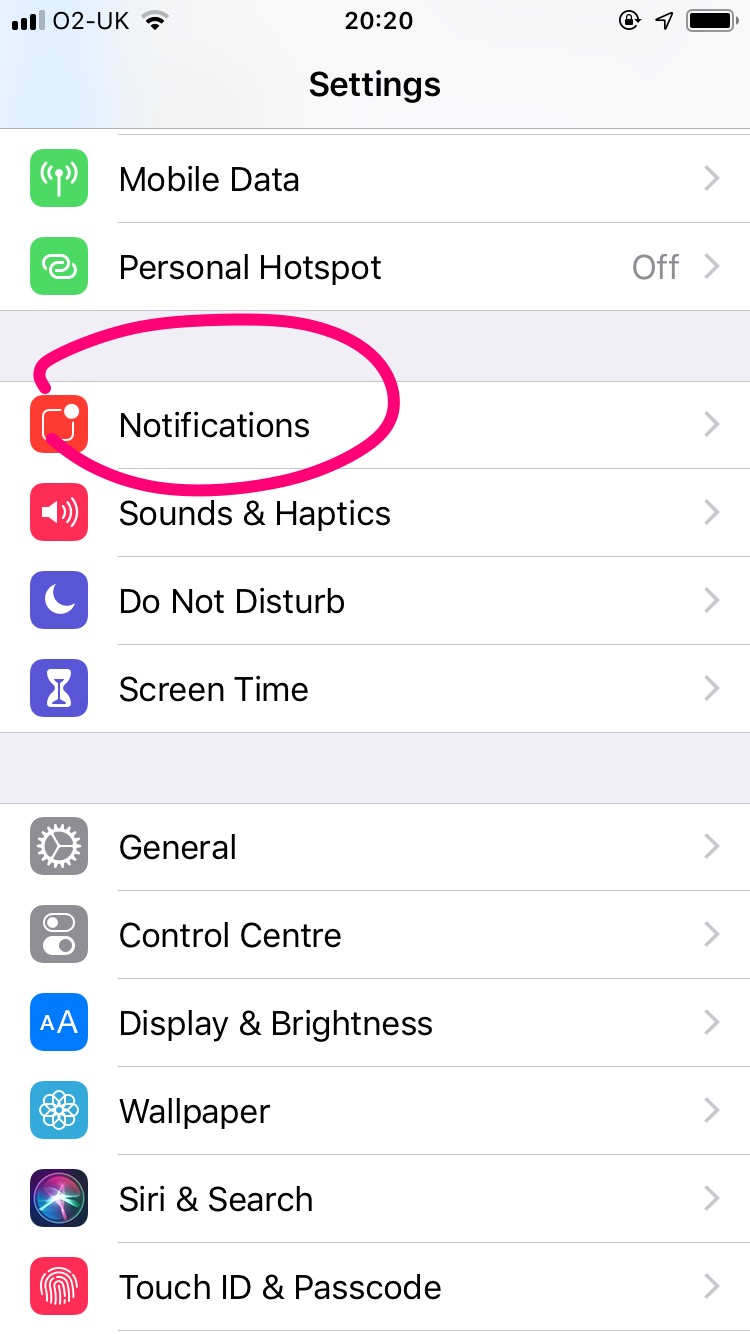In fact, the vast majority of responses were similar to the screenshots above. A handful of people mentioned subject specific issues but it’s interesting how our biggest challenges relate to our general approach to studying.
In this article, I’m going to share with you the do’s and donts of creating consistent motivation to study for your exams. I’ll also lay out a handy routine you can use to find motivation to study when you have none. Let’s handle exam stress in another post. 👍
What is motivation?
I find having a clear way to think about abstract concepts helps me audit my own behaviour more accurately. Once we figure out what’s happening, we can make changes that work. Let’s define what motivation is and its different forms.
A simple way of defining motivation is “a reason for behaving a certain way”
When someone says “I just have no motivation to revise”. Really what they’re saying is, “I have no compelling reasons to revise” (yet). 😉
Reasons come in different forms. In his book‘Drive’ Daniel Pink defines two types of motivation:
Intrinsic motivation: this is motivation to perform an activity for its own sake and personal satisfaction
Extrinsic motivation: this is when we’re motivated to earn a material reward or avoid punishment
Both intrinsic and extrinsic motivation have their uses. That said, Pink argues intrinsic motivation tends to be the more durable, sustainable and, therefore, more effective of the two. With this distinction in mind here are two videos which recommend some tactics you should and should not use to motivate yourself to study for exams.
5 Ways To Creative MASIVE Motivation To Revise
Control the primary source of procrastination
Procrastination is when we put off doing what we need to do in place of something less important or urgent. It’s going to be difficult to motivate yourself to take action on difficult tasks if there are various easier things to do at your fingertips. The smartphone is one of the primary outlets for procrastination in most people’s lives, so it makes sense to start by getting in control of this.
The best way I’ve found of doing this requires two separate things to happen.
1. Develop a fundamental understanding of how the online attention economy works on our smartphones. In short, this is an understanding that almost every app on our smartphones makes money through gaining and keeping our attention. Some apps need it more than others. For example, apps which make money through advertising.
You must understand that there is a conflict of interest between an app’s need to provide a service which people find useful, versus the incentive to increase their stock price value by acquiring a larger slice of our daily attention quota. Eventually, the objective utility of new notifications and features introduced by the app is superseded by their need for your constant attention. To mask this, companies will exploit psychological biases common to every human being to make them feel like a need is being met when they use the app. They form habit loops fuelled by the feel good chemical - ‘dopamine’. Examples of psychological biases often exploited can be broadly described as FOMO, social approval bias, competitive gamification, and our fascination with the new and unknown (we develop this as babies and it persists throughout our lives).
2. Take action by changing the push notification settings on every app on your phone. You don’t need them. Go to the app when you want to, not when that app ’thinks’ it has something worth notifying you of. For anything urgent, use the phone for its original purpose - make a phone call! This isn’t the perfect solve (I’m still working on this). But it’s a great start to injecting more time and headspace into your day.
How to be notification free (check that home screen 🙌) makes me feel Zen every time I look at it:
Think Long term
Here’s a black line representing an average female lifespan in the UK (81 years). The dark green line which bisects it represents the amount of time you spend revising within the context of your whole life. It’s miniscule.
The horizontal black line is 10cm long. The vertical green line is 1mm which is 1% of the line.
Here are my workings:
The majority of public examinations are taken between the ages of 13 to 22. That’s 9 years of education.
Let’s say you have to revise every year. This isn’t strictly true as you and I both know we are not taking exams which go on our public record year in year out. But let’s overestimate anyway.
Total hours available between age 13-22:
24 hours in day x 365 a year x 9 years = 78,840 hours
Total hours spent revising:
8 hours x 90 days x 9 years = 6480 hours
I’ve estimated 90 days, the 90 days before exams is roughly when the majority of people will start lifting a finger to think about getting down to some proper exam revision. 8 hours per day is a standard working day, that’s definitely an overestimation, but let’s stick with it, I want to emphasise how small this upfront ‘revision investment’ actually is.
Percentage of time spent revising between the age of 13-22:
6480 as a percentage of 78,840 = 8% of your time
This lowers to 0.9% when placed within the context of the average female human life span in the UK - 81 years. I’ve rounded this up to 1% in the diagram above.
That’s a titchy upfront investment whichever way you look at it, even if you do consider 13-22 your golden years when you should be doing nothing but leisure activities!
Side note:
I’ve only shown my workings for revision specifically as many students can find the motivation to attend school and get homework done to reasonable standard. After all, there is a punishment and reward system in place to motivate students to attend school and get their homework done. Revision, on the other hand, is extra work, voluntary work. It’s particularly difficult to motivate yourself for this because there are no short term punishments or rewards.
To summarise, a decent set of exam results is a worthwhile investment which will have almost 60 years to compound and deliver return on investment in the form of a domino effect of opportunities. Internalise the workings above and let it drive you.
Tip: if you’ve ever been inside the walls of a sales or financial investment firm, it’s likely you will have seen numbers written where everyone can see them. These are their targets. Put the numbers I’ve laid out above where you can see them so you can remember your investment and the long term rationale behind it!
Remind Yourself of 'The Rules' Daily (these don’t only apply to exams)
Don’t worry if you’re saying to yourself “What? I didn’t know ‘The Rules’ existed”.
You don’t know about them because I’ve just made them up.
The three rules below are what I believe to be true. I believe them not because they work each and every time they’re adhered to. I believe them because I know they will provide consistency and resilience required to be successful over the long term. Internalise these rules for your exams too.
The Rules:
Success is never handed to you, you have to work hard for it
High quality regular practice delivers improved results
Do the little things right daily and they will add up to something big
“Success is like building a wall, brick by brick” - Will Smith
Tip: Type ‘The Rules’ down on your phone, put them somewhere they’re easily accessible. They’ll put you right when you need them most.
Gather some proper perspective
Every morning you should be recalibrating your perspective on the opportunities you have. Social media can cause our expectations and reality to become out of sync. We can often find ourselves comparing our whole lives (the boring bits and the best bits) with the carefully curated, edited and filtered ‘highlights’ of other people’s lives available to see over the internet. Rarely do we flip the script and think about how grateful we are for what we already have. We tend to compare upwards rather than downwards, if that makes sense.
There are two ways I’ve found to successfully do this:
Regularly you remind yourself of how lucky you are to be alive. I know this sounds a bit fluffy but it’s just kinda true…You and I are both incredibly fortunate to be here. So grab the opportunity with both hands and give it everything you’ve got.
My former boss, Gary Vaynerchuk, is constantly reminding people of this by quoting the chances of being born - 400 trillion to one! I don't know the exact chances of being born but that number sounds about right…
2. Understand that the best time to be alive in the whole of human history is now
In the past, people have had it way harder than you and I. I’m not saying people’s lives today are easy or the perfect situation. I’m just saying that so many things we take for granted which would be overwhelmingly appreciated by previous generations. I’m talking about the basic stuff (running water, decent healthcare, a roof over our heads) and the big stuff (law and order, equality of opportunity, freedom).
Take responsibility for the opportunities you have presented to you and make it so that you can afford to hand out plenty of opportunities as you mature within society. What you take for granted is someone else’s hopes and dreams.
- ☝️I’ve just made that up but you can take it as an Exam Coach Quote if you want! 😂
Use a regret minimisation framework
Here’s a clip of Jeff Bezos, founder of Amazon, a trillion dollar company, explaining what this is:
Within the context of exams, I see this as looking back on your life aged 80 and noticing how a few decisions during your teenage years played a significant role in dictating the trajectory of the rest of your life.
Does this mean you are doomed if you don’t do well in school? No, of course not. There a many examples of people who have become successful (in whatever way you want to define it) without getting great exam results. I guess Sir Richard Branson is the poster boy for this. But let’s look at the facts instead of the media coverage for a minute. There’s only one Richard Branson and probably a handful of other people like him who have succeeded in spite of not taking advantage of the education system in the form of getting a solid set of exam results.
There are millions of people in this country and over the world who earn a decent living wage and lead happy and fulfilled lives because of the strong foundation they built in school. Equally, there are also millions stuck in dead end, soul sucking jobs, because they had no options when they came out of education. The thing is, we don’t hear about these stories, after all they are not extraordinary and, for that reason, not newsworthy. Remember to see the wood for the trees. Be ambitious, believe in yourself but take calculated risks. I think Sir Richard would agree with this.
So there you have it, 5 ways to motivate yourself for exams, let’s look at the other side of the coin for a minute….
5 Ways NOT To Motivate Yourself For Exams
Don’t use time studied for as a source of motivation and positive reinforcement
Being motivated by the time sat at your desk “revising” is going to give you a false sense of progress. Time studied for is a vanity metric. It’s something students who don’t understand what effective revision is really about use to size themselves up against other average students like them…Harsh, but true.
You know as well as I do some of that time was spent on your smartphone or gazing out the window thinking about pizza. This isn’t harsh, it’s just true and I’m also guilty of this. 😉
Be motivated by working through the syllabus and its topics as quickly and effectively as possible whilst also gradually building up your ability to recall the information unassisted through regular self testing.
Understand that monetary rewards from parents ARE not a long term motivator
We all know this happens, you get that friend who says she's getting paid a couple of stacks dependent on the grades she gets. £100 for an A, £50 for a B….Heck, some people I know were paid a small fortune for achieving a poor grade!
But, here’s the thing, according to how motivation actually works, awarding money for the completion of a task is a form of extrinsic motivation- it’s an external reward. Pink tells us “extrinsic motivation can be effective over the short term in encouraging mechanical tasks and compliance.” So if your parents are paying you at the end of every day of revision, then maybe this would work. But this doesn’t happen, parents pay up on results day, long after the days of revision have passed.
As a motivational tactic, it doesn’t make sense to create financial incentives to achieve good exam results.
The bottom line is, don’t do it for the money, it will undermine your intrinsic motivation.
Don’t be motivated by the need to impress anyone, this includes your parents
As much as possible you want to find your own reasons for doing well…Doing things because we find personal growth and meaning in them is what helps us push through tough times.
Reacting because of what other people might think about your success or failure should be a lot lower down on your motivational priorities.
Yep, wanting to make your parents proud could be a motivational factor, but not the primary one. Ultimately, you gotta want to do it for you.
Don’t be motivated by fear
Fear can be a great long term motivator. Though, for exam motivation, I’d recommend against it. The reason for this is a by-product of using fear as a motivational source can be stress and anxiety. These two things will eventually take their toll on your revision, ability to perform in the exam room, and your final grades.
Become motivated by the skills exams can build in you and overcoming the day to day challenges.
Seeing the broader purpose of using the exam experience to put yourself in a stronger position to take opportunities in the future is a big part of this.
Focus on what you could win, not what you’re gonna lose if things don’t go to plan.
Don’t compare yourself to the people at your school
The world’s a way bigger place that the 9, 16, 30 people in your Chemistry class on Tuesday mornings. If I’m honest, I didn’t fully appreciate this when I was at school and had to have my perspective corrected on many occasions (mainly by my parents when I went home to see them on the weekends).
If you’re currently graded at the top or the bottom of the class, it doesn’t matter. Run your own race, looking around at what other people are doing the whole time is not going to do you any good, you’ll have less time to focus on what you’re doing and how you can improve.
If you’re streaks ahead of everyone, find a way to push on and know that there is probably someone out there who makes you look like a dunce. Likewise, if you’re struggling along at the bottom of the class, know that there are many people who wish they understood half as much as you currently do about the subject. Take pride in that as a platform to build on. As Will Smith says ‘build your success. brick by brick’.
A bit of healthy competition is good, but do it with an appreciation of the true scale of how many people there are in the world and the fact we all progress at different speeds.
Focus on your own improvement, think big picture and never stop trying to get better and learn.
Summary
Ok…The above section runs through some high-level do’s and donts of exam motivation with the occasional actionable thing you can do to reduce the chances of procrastination and increase the chances for motivated action.
You also need something to fall back on when you need to work but you just can’t find the motivation to do so in that moment. You need a directive, a recipe, a system, a step-by-step series of actions you take to turn the motivational tide.
Here’s my recommendation…
A 7 step process to beat procrastination - the enemy of motivation
This process is a routine you can follow whenever you feel totally unmotivated to get down to work. We all know what this feels like. You’d rather do anything than open a book and begin trying to understand the information in front of you. You’re picking up and putting down your phone every 20 seconds, watching any video on YouTube which looks half interesting or taking way longer than necessary to find a decent banger of a tune on your playlist.
Step 1
Break the pattern of procrastination. The moment you start doing something similar to what I’ve described above, leave your study space as soon as possible.
This seems counterintuitive and like you’re giving up or wasting even more time, but the priority here is to break the pattern of repetitive procrastination.
Step 2
Get outside, take a 10 minute walk, do some light exercise. My go to is a walk/light jog with my dogs (the revision retrievers).
This will help clear you head, gather some perspective on your priorities and help you relax.
The LADS!
Step 3
Revisit your desk. Set a timer for 25 minutes on your smartphone. Use the Pomodoro technique.
Step 4
Decide on one thing to do. It could be to revise a specific topic or even a specific couple of pages from your revision guide. The important thing here is to be specific - ONE THING.
Step 5
Reset to neutral. Clear your desk of everything apart from the things you absolutely need to achieve this one task. Your smartphone is no longer a smartphone, it’s a timer. Set it to airplane mode.
Step 6
Get down to work. Set low expectations, it doesn’t matter if you don’t understand everything. Just start taking some notes, verbalising the information in your head and self testing. Look at the information, cover it up, write out what you remember, check it.
This is basic stuff but it will help get the revision ball rolling.
Step 7
After 25 minutes is up and if you’re feeling your momentum wane take a 5-10 minute break.
You could give yourself a small reward like a piece of choccy, a lil’ gaming sesh or watching a video of your favourite vlogger. That said, these can so easily turn into marathon breaks.
Try to make your breaks periods of time where you’re consciously putting yourself in a great position for your next revision session. For example, rehydrating, getting outside, looking at or reading something which motivates you to give it your all.
If you’re able to power through the 25 minute mark and continue studying - do it! Revision is all about momentum, that is, sustaining it when you have it and taking a break when you don’t.
To finish off this blog post here’s some more content on motivation pulled from the depths of The Exam Coach archives:
Snapchat story: My Motivation Wall
If you found this post useful, share it with anyone you think might benefit from it.👇
I’m checking out. 🤙











